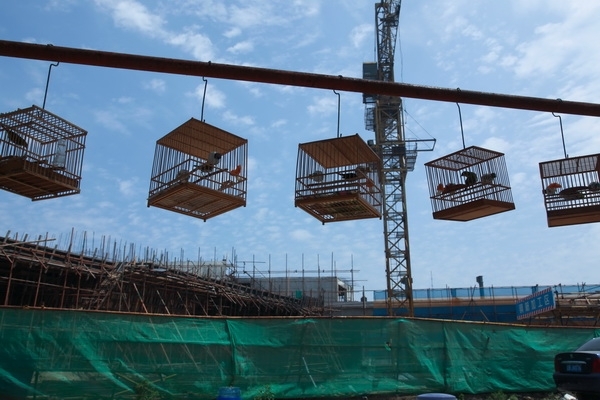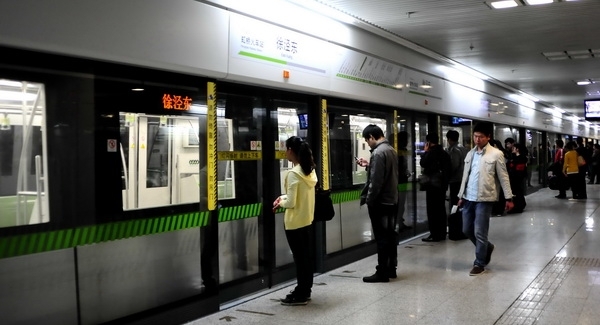

Highlights from the EO print edition, No. 582, Aug 13, 2012

Taiwanese Companies Enter Western China
News, cover
~ The continuous increase in the cost of raw materials, land and labour in much of Mainland China has forced Taiwanese investors to look for opportunities elsewhere.
~ "This round of the economic crisis is even more severe than in 2008," Huang Ruxu (黄如旭), the president of Xiamen municipal Taiwan Business Investment and Enterprises Association, told the EO.
~ Huang says that some of his Taiwanese colleagues have gone back to Taiwan and others have moved to Southeast Asia. Those that have choosen to keep doing business in Mainland China have had to make some adjustments to their investment strategy. Some have withdrawn from the manufacture industry and are investing in real estate or the cultural and creative industries. For those who have stayed in the manufacture industry, many have considered moving to the western regions of China.
~ "More and more Taiwan business people who were doing business in the coastal areas of Guangdong and Fujian have come to invest in Chongqing," said Tan Shunhong (谭顺鸿), the secretary-general of Chongqing Taiwan Business Association.
~ Bishan (璧山) County in Chongqing formally started developing a Chongqing Taiwan Business Industrial Park in May this year.
~ Chongqing is hoping to attrack Taiwan business investment in the IT sector. Since 2010, the local government has started closing down a large number of polluting enterprises since 2010 and it has also introduced many favorable policies to entice investors.
~ Shandong, Hubei and Guangxi provinces have also tried to attract Taiwan companies to invest in their local economies. The provincial and municipal governments of these central and western regions offer more preferential land and tax policies and it's often easier to get approval for a project too.
Original article: [Chinese]
Regulation to Keep a Lid on Agricultural Prices
News, page 2
~ Overall, the price of grain in China over the first seven months of 2012 was stable, this is despite the sudden jumps in the international price since June.
~ Chinese grain prices have been stable thanks in part to the size of the country's grain reserves, moreover, price stability is also related to strict grain regulation and control measures.
~ Analysts predict this regulatory control will help to limit increases in grain prices over the coming months.
~ Pork prices aren't likely to rebound until just before Chinese New Year in 2013. The price of other important agricultural products such as cooking oil and vegetables is also unlikely to rise too quickly.
~ The grain industry is contolled by various regulatory and control measures. In terms of levers that the government can use to control the price of grain, in addition to adjusting the level of imports and grain reserves, they can also continue to implement strict limits on grain processing. In addition, the government can also purchase grain at a guaranteed minimum price off producers.
~ This year, Sinograin (China Grain Reserves Corporation), a centrally administered state-owned enterprise (COE) that's responsible for storing China's grain reserves, will once again serve as the sole body in charge of conducting the state's purchase of grain at a guaranteed minimum prices.
~ For the cooking oil which increased a lot recently, the relevant department will adopt a clear policy to limit the price.
~ China consumes about 500 million tons of grain a year, the government maintains stockpiles equivalent to about 40 percent of demand to safeguard food supplies and control prices.
Original article: [Chinese]

The Era of "Light Assets" for Property Developers?
News, Page 5
~ The increased trading volume in the housing market doesn't excite Chinese property developers as much as it used to. These days they're more subdued when discussing their huge land reserves.
~ They have good reason. By August 8, 2012, the semi-annual report of 22 listed real-estate companies showed that they built 30 billion yuan's worth of new, unsold homes since the start of the year. Market observers estimate the big real-estate companies now have enough leftover land reserves for ten-years of development.
~ As speculative investors are edged out by government policies, the huge land reserves may indicate housing prices won't go up further.
~ Since the government has enacted policies to prevent hoarding land without developing it, real-estate companies must reduce undeveloped land reserves and be "asset light."
~ Many developers are trying to get rid of excessive land reserves, gain more sales and increase capital turnover. They're developing medium and low-priced apartments for first time home-buyers or people hoping to improve their living conditions. ~ They're also trying to rely more on diversified financial channels rather than focusing on bank loans. Though all these measures can be perceived as an effort to "lighten" their assets, observers say the real-estate companies are still far from being truly "asset light."
Original article: [Chinese]


